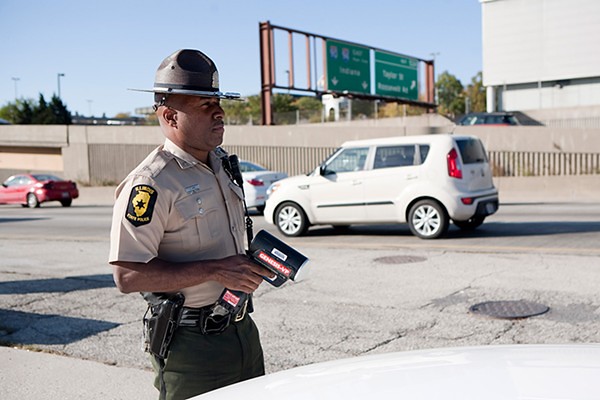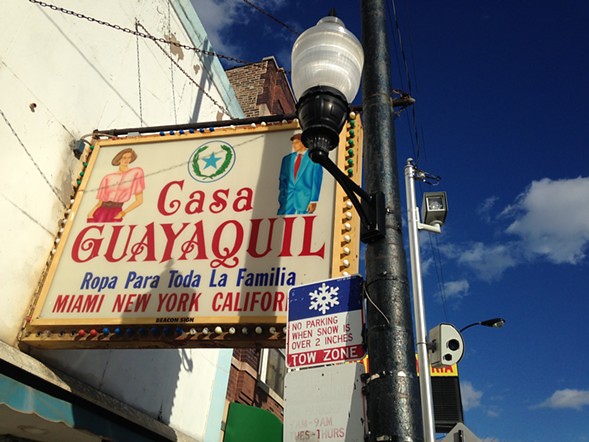
[Last year the Chicago Reader launched a weekly transportation column written by Streetsblog Chicago editor John Greenfield. This partnership allows Streetsblog to extend the reach of our livable streets advocacy. We syndicate a portion of the column after it comes out online; you can read the remainder on the Reader’s website or in print. The paper hits the streets on Thursdays.]
Automated traffic enforcement has hit plenty of potholes in Chicago, ranging from red-light cameras installed in dubious locations during the second Daley administration to the Redflex bribery scheme. Still, numerous studies have proven that properly run red-light and speed-camera programs prevent serious traffic injuries and deaths. In recent years Chicago has taken steps to reform the city's automated enforcement system, and recent statistics indicate the cams are doing their job to prevent violations and serious or fatal crashes. Automated enforcement may also reduce racial profiling: cameras report driver behavior, but they don't care who's behind the wheel.
But there's one aspect of Chicago's traffic-camera program (and traffic enforcement in general) that's problematic from a social justice standpoint: the fine structure is regressive. Chicago doles out a $100 ticket for running a red light or speeding at 11 mph over the limit. Since the tickets cost the same whether you're rich or poor, lower-income people are charged a higher percentage of their income than rich people are. A $100 penalty may be about right for making middle-class people think twice before breaking the rules of the road. But for a person who's barely making ends meet, it could be a major hardship.
"Maybe it slows some people down," said Tamika Butler, director of the LA County Bike Coalition, in a recent interview with City Lab. "But for others, it just builds on years of mistrust. It stands between a mom putting food on her table and paying rent."
In Chicago, failure to pay an initial $100 ticket on time can lead to additional late fees. Accumulating three or more tickets, or two at least a year old, can lead to your car being booted. If that happens, you must pay all existing fines and penalties plus a $60 boot fee to liberate your car. If the car stays booted for 24 hours, it can be towed and impounded. Towed cars are assessed a fee of $150, plus a storage fee of $20 per day for the first five days, and $35 per day after that. It's easy to see how all these costs could result in a financial crisis for a family living below the median Chicago household income of $47,408. (And while car ownership can be a money pit for lower-income folks, in parts of the city with poor transit access, residents may feel that driving is their only practical option.)
John Oliver drove this point home in a recent Last Week Tonight segment on municipal violations. Relatively minor infractions, including speeding tickets, can snowball into a mountain of debt, loss of license and employment, or even jail time—a vicious cycle that Oliver referred to as "the f--- barrel."
So in summary, while dangerous driving is no laughing matter, the occasional driving error shouldn't result in financial ruin for low-income people.
That's why I'd suggest that we look to northern Europe for an alternative. An idea from Finland might address this issue. There, traffic fines are proportionate to the offender’s wealth rather than a flat fee.
As detailed in the Atlantic last year, most of Scandinavia—as well as Germany, Austria, France, and Switzerland—has sliding-scale traffic fines proportionate to income. At the extreme end is the story of Reima Kuisla, a Finnish businessman who was stopped for driving at 65 mph in a 50 mph zone. The police checked tax records and saw that his declared income was €6.5 million a year, or about $7.3 million. Kuisla was fined a staggering €54,000, or about $60,654. Even an oligarch can't laugh off that kind of penalty.
The Finnish system is based on so-called "day fines"—the amount of spending money a driver has per day is divided in half, and that amount serves as the basis for the fine. Speeding by 15 mph carries a penalty of 12 days of half income, while going 25 mph over the limit will cost you 22 days.





